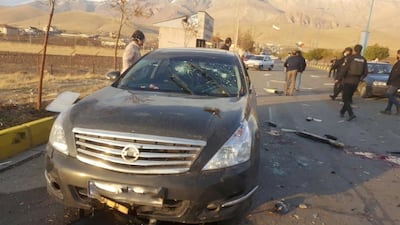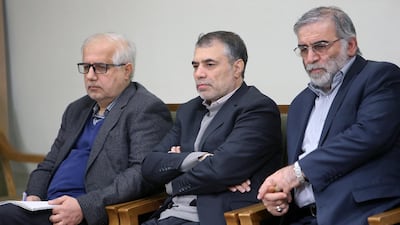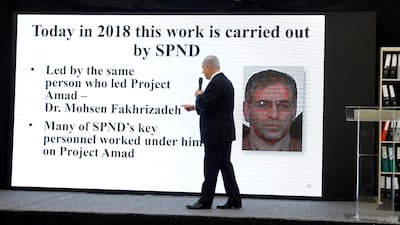The deputy commander of Iran's Islamic Revolutionary Guard Corps said on Sunday that he believed a satellite-controlled machinegun with artificial intelligence was used in last month's assassination of a top nuclear scientist.
Mohsen Fakhrizadeh was driving on a motorway outside Iran's capital Tehran with 11 guards on November 27 when the machinegun zoomed in and fired 13 rounds, Rear Admiral Ali Fadavi told Iranian media.
The machinegun was mounted on a Nissan pick-up truck and was being "controlled online" by satellite.
It used an "advanced camera and artificial intelligence" to carry out the killing, Adm Fadavi told the Mehr news agency.
It is unclear who was behind the killing, but Iran's state-run Press TV claimed that weapons "made in Israel" were found at the scene. Iran has yet to provide any pictures of equipment reportedly recovered at the ambush site.
President Hassan Rouhani last week accused Israel of being responsible for the assassination, saying it was acting as a mercenary for the US.
Western and Israeli governments have long held the belief that Fakhrizadeh was the architect of a secret Iranian nuclear weapons programme. He was reportedly close to Iran's supreme leader, Ayatollah Ali Khamenei, and a member of the IRGC. He was identified in 2011 by the International Atomic Energy Agency as playing a leading role in Iran's nuclear weapons research.
Various accounts of the scientist's death emerged after the attack, with Iran's defence ministry initially saying he was caught in a firefight with his bodyguards.
Fars news agency claimed "a remote-controlled, automatic machinegun" killed him, without giving any sources.
A failure of counterintelligence
Iran's conflicting explanations for what happened led to speculation that the IRGC is trying to deflect attention from what amounts to an embarrassing security breach on its soil.
For such a complex operation to be successful, each element would have to work perfectly, including communication and data links between the various devices used.
Furthermore, the equipment would almost certainly have been custom-made, since military "remote weapons systems" are too large for most civilian vehicles. Equipment for the operation would therefore have had to be smuggled into Iran – itself a dangerous operation.
While the use of a sophisticated remote control weapon cannot be ruled out, the idea that assassins apparently had free reign in Iran to have killed five nuclear scientists since 2010 could be seen as a source of humiliation for the IRGC, who may prefer to portray the killing as an unavoidable act.













